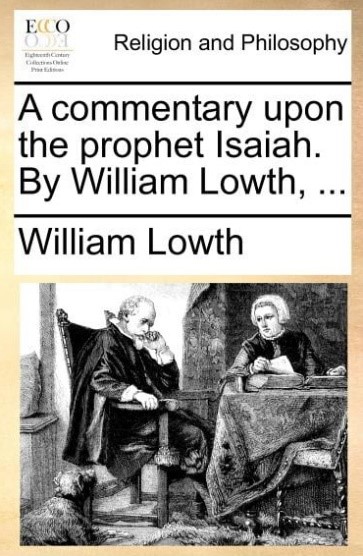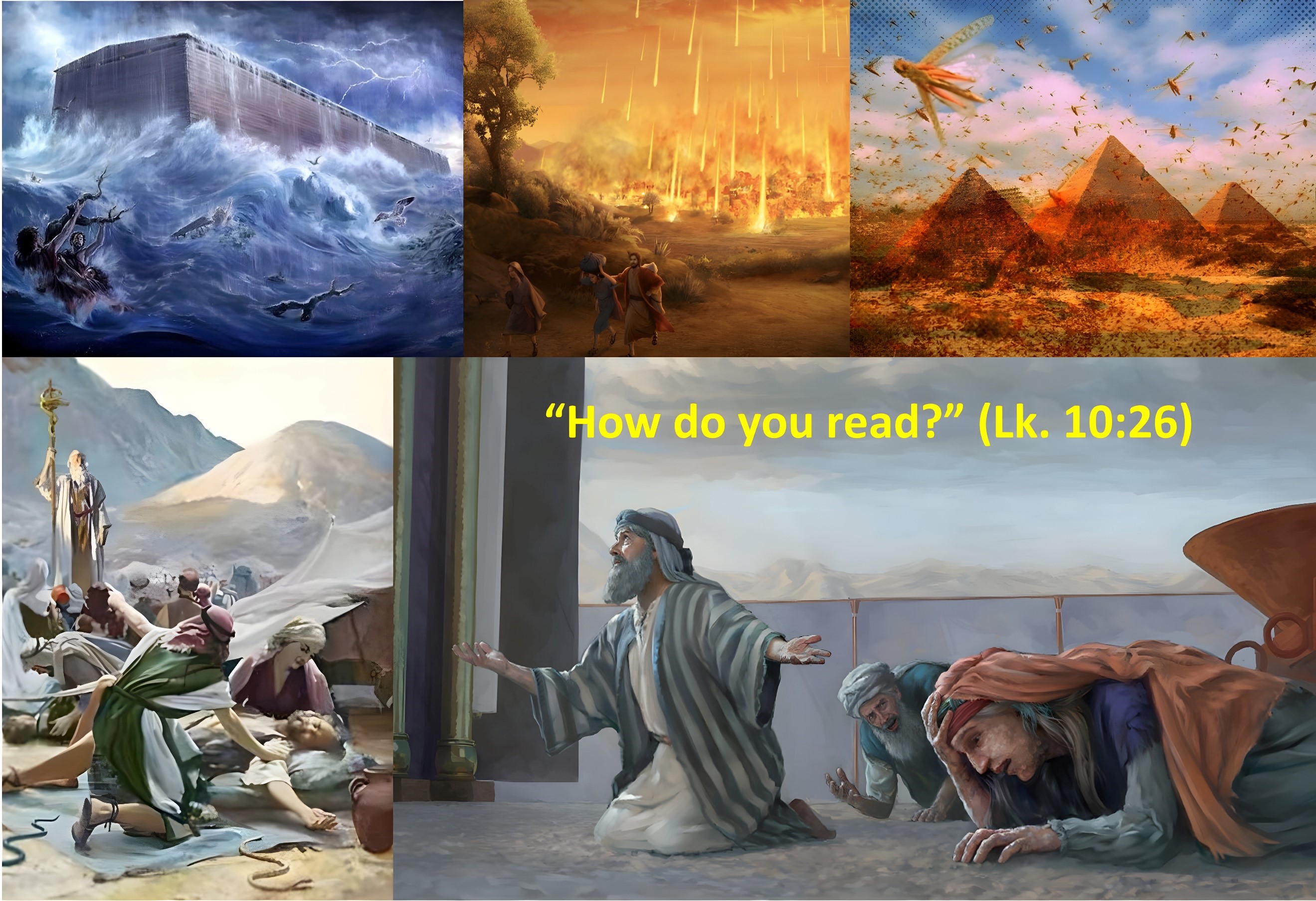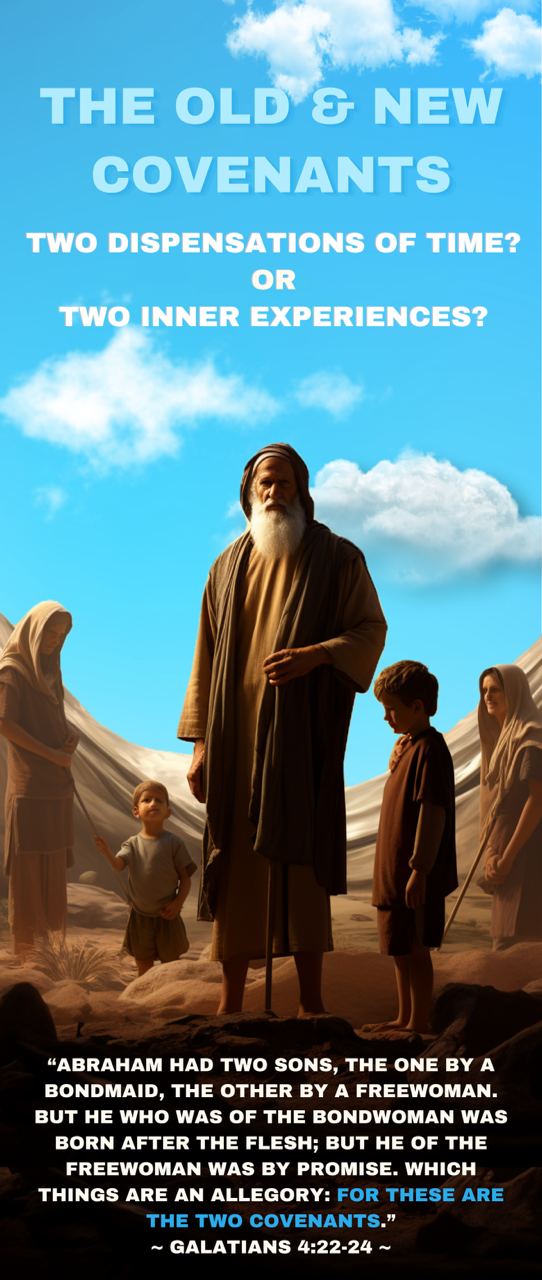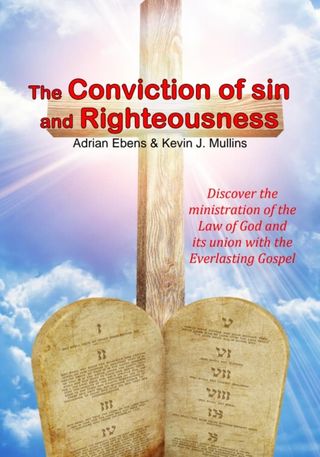Doesn’t the Bible Repeatedly Say God Directly CAUSES Sickness, Destruction, and Death?
Updated: November 2025
 As one begins to read the Bible, especially The Old Testament, we come across some very strange statements regarding God’s character. Here are a few to consider:
As one begins to read the Bible, especially The Old Testament, we come across some very strange statements regarding God’s character. Here are a few to consider:
Exodus 4:21: “And the Lord said to Moses, ‘When you go back to Egypt, see that you do all those wonders before Pharaoh which I have put in your hand. But I will harden his heart, so that he will not let the people go.’”
Numbers 21:6: “So the LORD sent fiery serpents among the people, and they bit the people; and many of the people of Israel died.”
1 Kings 22:23: “Therefore look! The Lord has put a lying spirit in the mouth of all these prophets of yours, and the Lord has declared disaster against you.”
1 Chronicles 21:14: “So the LORD sent pestilence upon Israel: and there fell of Israel seventy thousand men.”
Even the New Testament is not immune to such descriptions. Quoting Isaiah 29:10, Paul wrote:
Romans 11:18: “(According as it is written, God hath given them the spirit of slumber, eyes that they should not see, and ears that they should not hear;) unto this day.”
In another place, he wrote:
2 Thessalonians 2:11: “And for this cause God shall send them strong delusion, that they should believe a lie.”
The Hiphil Verb Tense
and the Hebrew Idiom of Permission
How are we to understand these statements? It is 100% true that we are to take the Bible just as it reads, however, even if non-inspired translators translate the words and phrases correctly, just as they appear in the inspired Hebrew or Greek, we do not always comprehend the original intent behind those words and phrases thus we will come to a wrong conclusion about God’s character.
For example, in his Commentary Upon the Prophet Isaiah published in 1714, William Lowth quotes the following verse:
“O LORD, why hast thou made us to err from thy ways, and hardened our heart from thy fear? Return for thy servants' sake, the tribes of thine inheritance.” (Isaiah 63:17, King James Version)
Why would God ever make anyone stray from His ways? What are we missing from this Hebrew phrase that isn’t coming through in English? Here’s how William Lowth explains it:

“The Words might better have been rendered, Why hast thou suffered [permitted] us to err from thy ways? for the form called Hiphil in Hebrew often denotes only permission, and is rendered elsewhere to that sense by our translators.” (William Lowth, A Commentary Upon the Prophet Isaiah, p. 501, word in brackets added)
Here, Mr. Lowth introduces us to a Hebrew form of grammar called Hiphil. The Hebrew word translated as “hast thou made us to err” is the verb תָּעָה (ta`ah), which is in the Hiphil form thus, since it “often denotes only permission”, it could be understood that God is not literally causing the people to err. Rather, by honoring man’s free will, God permits us to err from His ways and reap the natural consequences of such choices. In his Companion Bible, E.W. Bullinger translates it like this:
“Why hast Thou suffered [permitted] us to err from Thy ways, and to let us harden our hearts …” (words in brackets added)
Although the Hiphil verb tense isn't always present, this important principle in interpreting Scripture (that God is permitting that which He is often said to directly cause, do, or even command) helps us to understand those sample texts we quoted at the beginning of this study. Notice what Adam Clarke writes about Exodus 4:21 where God is quoted as saying, “I will harden his [Pharaoh’s] heart”:

“All those who have read the Scriptures with care and attention, know well that God is frequently represented in them as doing what he only permits to be done. So because a man has grieved his Spirit and resisted his grace he withdraws that Spirit and grace from him, and thus he becomes bold and presumptuous in sin. Pharaoh made his own heart stubborn against God, Exodus 9:34; and God gave him up to judicial blindness, so that he rushed on stubbornly to his own destruction.” (Adam Clarke, Commentary on the Whole Bible, Exodus 4:21)
We read a similar verse in Exodus 10:27: “But the LORD hardened pharaoh’s heart.” In her Translation of the Old Testament Scriptures from the original Hebrew, Helen Spurrell translates Exodus 10:27 as, “But JEHOVAH permitted Pharaoh’s heart to be hardened” (see also on Exodus 10:1). And in The Emphasized Bible it says, “And Yahweh let the heart of Pharaoh wax bold.” This is also seen in other passages where it says that Pharaoh hardened his own heart (Exodus 8:15, 32; 9:34).
In the book of Jeremiah, we read:
“I will cause them to fall by the sword before their enemies.” (Jeremiah 19:7)
Again, this Hiphil verb tense suggests the permissive sense, as the Unlocked Dynamic Bible translates it:
“I will allow your enemies who want to kill you to kill many of you with their swords.”
Another passage from the book of Jeremiah that uses the Hiphil tense is found here:
“Then I said, “Ah, Lord God! Surely You have greatly deceived this people and Jerusalem, saying, ‘You shall have peace,’ Whereas the sword reaches to the heart.” (Jeremiah 4:10)
Does God really deceive people? Here’s how John Gill explains it:
“What the false prophets did, that God is said to do, because he suffered [permitted] them to deceive the people; see 1 Kings 22:20. The Targum [Aramaic version] ascribes the deception to the false prophets, and not to God, ‘surely behold the false prophets deceive this people, and the inhabitants of Jerusalem.’” (Words in brackets added)
Echoing this understanding, we can read Jeremiah 4:10 from the New English Translation:
“In response to all this I said, ‘Ah, Lord GOD, you have surely allowed the people of Judah and Jerusalem to be deceived by those who say, ‘You will be safe!’ But in fact a sword is already at our throats.’”
In addition, John Goodge Foyster concludes:
“In the language of scripture, natural consequences are sometimes spoken of as though they were pre-ordained and irrevocable decrees. What happens solely through the permission of the Almighty, in the ordinary course of his Providence, is described as though it had taken place through some special and irresistible intervention of his hand. This is a mode of writing peculiar to the Hebrew idiom; an idiom which prevails everywhere throughout the New Testament, as well as the Old. Thus, when the sacred writers represent God as ‘blinding the eyes of men that they should not see, and hardening their hearts that they should not understand;’ their meaning generally is that he does not powerfully interfere to prevent those evils which are the natural fruits of our own folly, perverseness, and impenitence.” (John Goodge Foyster, Sermons; p. 90, 1826)
We see the Hiphil tense again in this next verse:
“But while the meat was still between their teeth, before it was chewed, the wrath of the LORD was aroused against the people, and the LORD struck the people with a very great plague.” (Numbers 11:33)
 We are not to interpret this passage as God directly striking or causing the plague but permitting it. This is the incident when God’s people craved flesh food rather than the manna He was providing for them in the wilderness, so He gave them quail to eat. Recounting this story, the Psalmist wrote that God “… let them [the quail] fall in the midst of their camp, all around their dwellings. So they ate and were well filled, for He gave them their own desire. They were not deprived of their craving …” (Psalm 78:28-30). Therefore, the plague did not come directly from God supernaturally infecting them but from the quail. Quail are known to be extremely poisonous during migration, especially while they are flying certain routes:
We are not to interpret this passage as God directly striking or causing the plague but permitting it. This is the incident when God’s people craved flesh food rather than the manna He was providing for them in the wilderness, so He gave them quail to eat. Recounting this story, the Psalmist wrote that God “… let them [the quail] fall in the midst of their camp, all around their dwellings. So they ate and were well filled, for He gave them their own desire. They were not deprived of their craving …” (Psalm 78:28-30). Therefore, the plague did not come directly from God supernaturally infecting them but from the quail. Quail are known to be extremely poisonous during migration, especially while they are flying certain routes:
“One of the most widely known and studied poisonous birds is the European quail (Coturnix coturnix) in Eurasia and North Africa. Cases of quail poisoning have been reported since antiquity, although scientific evidence for the presence of poison in their tissue is still inconclusive to this day. In the Old Testament, the Book of Numbers recounts that many Israelites died after the consumption of this poisonous bird during their exodus from Egypt. In addition, human poisoning after eating European migratory quail, known as coturnism, was so common in the Roman Empire that quail consumption was prohibited during the 1st century AD.” (Guérin Nicolas, When Poison Takes Flight: these birds might kill you – if you eat them, Sciencenordic.com, Thursday, September 1, 2022)
There are even times when God seems to command things when in fact He is only permitting the person or people to carry out what they have already set their heart to do. In the book of Ezekiel, we read:
“Therefore speak to them, and say to them, ‘Thus says the Lord God: 'Everyone of the house of Israel who sets up his idols in his heart, and puts before him what causes him to stumble into iniquity, and then comes to the prophet, I the Lord will answer him who comes, according to the multitude of his idols, that I may seize the house of Israel by their heart, because they are all estranged from Me by their idols.'” (Ezekiel 14:4-5)
In Brenton's Septuagint, it says it this way: "I the Lord will answer him according to the things in which his mind is entangled." An example of this is found in 2 Samuel 16:10-11, which seems to suggest that God commanded Shimei to curse David. Adam Clarke explains:
“No man can suppose that ever God bade one man to curse another, much less that he commanded such a wretch as Shimei to curse such a man as David; but this is a peculiarity of the Hebrew language, which does not always distinguish between permission and commandment. Often the Scripture attributes to God what He only permits to be done; or what in the course of His providence He does not hinder. David, however, considers all this as being permitted of God for his chastisement and humiliation.” (Adam Clarke, Commentary on the Whole Bible, 2 Samuel 16:10-11)
In the September 24,1896 issue of The Present Truth UK, E.J. Waggoner wrote:
“God did not design that the people should do any fighting. He led them through the wilderness, in order that they might not see war [Ex. 13:17-18] ... When we consider the circumstances of their deliverance from Egypt-how it was all accomplished by the direct power of God, without any human power, their part being only to follow and obey His word-we must be convinced that it was not according to the plan of God that they should do any fighting, even in self-defence."
Later, in the January 7, 1897 edition of the same magazine, Waggoner explains why, in many portions of the Hebrew Scriptures, God does indeed "command" the people to fight:
“'But the children of Israel did fight throughout all their natural existence, and under God's direction, too,' it will be urged. That is very true, but it does not at all prove that it was God's purpose that they should fight. We must not forget that 'their minds were blinded' by unbelief, so that they could not perceive the purpose of God for them. They did not grasp the spiritual realities of the kingdom of God, but were content with shadows instead; and the same God who bore with their hardness of heart in the beginning, and strove to teach them by shadows, when they would not have the substance, still remained with them, compassionately considerate of their infirmities. God Himself suffered [permitted] them, because of the hardness of their hearts, to have a plurality of wives, and even laid down rules regulating polygamy, in order to diminish as far as possible the resulting evils, but that does not prove that He designed it for them. We well know that 'from the beginning it was not so.' So when Jesus forbade His followers to fight in any cause whatever, He introduced nothing new, any more than when He taught that a man should have but one wife, and should cleave to her as long as he lived He was simply enunciating first principles-preaching a thorough reformation." (Words in brackets added. For a more detailed study of this concept concerning warfare, CLICK HERE)
The Hebrew Word Shelach
What about those verbs saying God “sent fiery serpents” (Numbers 21:6) and will “send them strong delusion” (2 Thessalonians 2:11)? The Hebrew word for “sent” in Numbers 21:6 is shalach, and, although shalach is in the Pi`el verb form, it can still carry the meaning of permitting or “to give over to one’s own way.” Here’s how the same word is translated in Psalm 81:
“But My people would not heed My voice, and Israel would have none of Me. So I gave them over [shalach] to their own stubborn heart, to walk in their own counsels.” (Psalm 81:11-12)
In 1726, Edward Bird wrote:
“For pray, take notice, God is said in scripture to send what He can but doth not hinder from being sent.” (Fate and Destiny, Inconsistent with Christianity: or, The Horrid Decree of Absolute and Unconditional Election and Reprobation Fully Detected)
As to 2 Thessalonians 2:11, this is similar to what we read earlier from Jeremiah 4:10 where it seems to suggest that God had directly deceived the people. However, now knowing the Hebrew idiom of permission, we read it with new eyes. Here's a few alternative translations of the passage in Thessalonians:
- New Life Version: “God will allow them to follow false teaching.”
- Worldwide English NT: “God lets them be fooled.”
- Daniel Mace NT: “God will suffer [permit] a spirit of delusion.”
On page 401 in his book, The Providence of God Viewed In The Light Of Holy Scripture, Thomas Jackson quotes Thomas Pierce who summed things up nicely in 1658:
“When God is said to harden men’s hearts,-to deliver them up to a reprobate mind,-to send them strong delusions, that they should believe that God is acting unrighteously – meaning He is acting against His character a lie, and the like;- it is infinitely far from being meant of an efficacious impulse in God Almighty. That all those verbs,- to harden, to blind, to deliver up, to send delusions, to deceive, and the like,-are by an ordinary Hebraism only PERMISSIVE in signification, though active in sound, is placed without all controversy.”
The Hebrew Verb Natan/Nâthan
In Ezekiel 20:25, God says:
“Moreover, I gave them statutes that were not good and rules by which they could not have life.” (Ezekiel 20:25, English Standard Version)
The Hebrew verb in question here is נָתַן (natan/nâthan) of which Thomas Coke writes, “The original word natan, is frequently used in the permissive sense” (A Commentary on the Whole Bible, p. 282). And George Philips writes, “The verb [natan] signifies to permit” (The Psalms in Hebrew, p. 116).
The New King James Version translates it correctly by saying, “Therefore I also gave them up to statutes that were not good.” Bullinger’s Companion Bible explains that the words, “I gave them also statutes”, is a Hebrew idiom that means:
“‘I suffered [permitted] others to give them statutes’ … Active verbs in Hebrew were used to express not only the doing of the thing, but the permission of the thing which the agent is said to do. The [Hebrew] verb nâthan, to give, is therefore rendered to suffer [permit] in this sense.” (words in brackets added)
Referring to 1 Kings 22:23, which we saw refers to God putting a lying spirit in the mouths of the prophets, the word for “put” is natan. Understanding what this word implies, Adam Clarke explains:
“He hath permitted, or suffered, a lying spirit to influence thy prophets. It is requisite again to remind the reader, that the Scriptures repeatedly represent God as doing what, in the course of his providence, he only permits or suffers to be done. Nothing can be done in heaven, in earth, or hell, but either by his immediate energy or permission.” (Adam Clarke, Commentary on the Whole Bible, 1 Kings 22:23)
In The Holy Bible, Authorized Version, with Emendations, by J.T. Conquest, it says, "Now therefore, behold, the LORD hath permitted a lying spirit to enter into the mouth of all these prophets." And in the Unlocked Dynamic Bible, it reads, "So now I tell you that Yahweh has let all of your prophets lie to you."
We see the same verb in Leviticus 14:34-36:
“When you have come into the land of Canaan, which I [God] give you as a possession, and I PUT the leprous plague in a house in the land of your possession … then the priest shall command that they empty the house, before the priest goes into it to examine the plague, that all that is in the house may not be made unclean …”
The Hebrew word translated as “put” is natan, which means God is not the cause of the leprous plague (or mildew in this case).
“When it is said, ‘I put the plague of leprosy in a house,’ it sounds as if God himself were the author of the disease; but, according to the idiom of the Hebrew language, God is often said to do what in the course of events he merely permits to be done.” (Cassell’s Illustrated Bible, Vol, 1, Leviticus 14:34)
Understanding this idiom, John Bellamy translates this verse like this:
“When ye come to the land of Cannan which I give to you for a possession; and I permit a plague of leprosy in a house of the land of your possession …” (The Holy Bible: Newly Translated from the Original Hebrew: with Notes Critical and Explanatory, Vol. 1-3)
Referring to this passage, Troy J. Edwards writes:
“Other versions of the Bible, both ancient and modern, eliminate any suggestion that God had anything to do with the plague striking any of the homes: ‘… yf [if] there happen a plage of leprosy in any house of youre [your] possession’ (Miles Coverdale’s Translation); ‘… if the wound of leprosy is in the houses’ (John Wycliffe’s Translation); ‘… if there be the plague of leprosy in a house’ (Douary-Rheims 1899 American Edition); ‘… mildew may appear in a house’ (God’s Word). In these translations, God mentions that a plague might be discovered in a home but gives no details about its origins. This lays the groundwork for how we will read any and all passages in the Bible where it is implied that God created leprosy or any other illness or disease.” (The Hebrew Idiom of Permission, p. 119, words in brackets added)
The Curses of Deuteronomy 28 and the Story of Job

In Deuteronomy chapter 28, God lists some blessings that come from obedience and some curses that will befall us if we choose not to stand within the hedge of His protective Law. As God speaks, it appears that God Himself will directly hand out (impose) these curses. Here’s some examples as rendered in the New King James Version:
- Verse 20: “The Lord will send on you cursing, confusion, and rebuke in all that you set your hand to do, until you are destroyed and until you perish quickly, because of the wickedness of your doings in which you have forsaken Me.”
- Verse 21: "The Lord will make the plague cling to you until He has consumed you from the land which you are going to possess."
- Verse 22: “The Lord will strike you with consumption, with fever, with inflammation, with severe burning fever, with the sword, with scorching, and with mildew; they shall pursue you until you perish.”
- Verse 24: “The Lord will change the rain of your land to powder and dust; from the heaven it shall come down on you until you are destroyed.”
- Verse 25: “The Lord will cause you to be defeated before your enemies…”
- Verse 27: “The Lord will strike you with the boils of Egypt, with tumors, with the scab, and with the itch, from which you cannot be healed.”
- Verse 28: “The Lord will strike you with madness and blindness and confusion of heart.”
- Verse 35: “The Lord will strike you in the knees and on the legs with severe boils which cannot be healed, and from the sole of your foot to the top of your head.”
- Verses 36-37: “The Lord will bring you and the king whom you set over you to a nation which neither you nor your fathers have known, and there you shall serve other gods—wood and stone. And you shall become an astonishment, a proverb, and a byword among all nations where the Lord will drive you.”
- Verse 61: "Also every sickness and every plague, which is not written in this Book of the Law, will the Lord bring upon you until you are destroyed.”
- Verse 65: “And among those nations you shall find no rest, nor shall the sole of your foot have a resting place; but there the LORD will give you a trembling heart, failing eyes, and anguish of soul.”
The Hebrew word for “send” in verse 20 is שָׁלַח (shalach). As in the case of the word “sent” (shalach) in Numbers 21:6 we looked at previously, it can carry the meaning of permitting or “to give over to one’s own way.” Therefore, the meaning is quite clear: The Lord will give us over to all that our hand (selfish work) is set to do thus we will reap the negative inherent consequences of forsaking the Lord and not submitting to His Law.
In verses 21, 22, 27, 28, 35, 37 and 61, the words “make”, “strike”, “cause”, and “bring” are all in the Hiphil verb form, which can reveal “permission”. Likewise, in verses 24, 25 and 65, the words “change”, “cause” and “give” are translated from the Hebrew verb natan, which we have previously learned is most-often in the permissive sense. In fact, the New English Translation renders the word “cause” in verse 25 this way:
“The Lord will allow you to be struck down before your enemies …”
God defines this concept by explaining how all these curses would come by saying, “… many evils and troubles shall befall them, so that they will say in that day, ‘Have not these evils come upon us because our God is not among us?’” (Deuteronomy 31:17).
Is there a way we can prove this without a shadow of a doubt? Yes; and we can do it by looking at the story of Job.
We know from reading the book of Job that, although Satan tells God, “stretch out Your hand and touch all that he [Job] has” (Job 1:11), it would ultimately be Satan causing all the calamities that come upon Job and his family— “And the Lord said to Satan, ‘Behold, all that he has is in your power; only do not lay a hand on his person. So Satan went out from the presence of the Lord” (Verse 12). So, when Satan told God “stretch out Your hand and touch all that he has”, we can be confident that, although it appears that God is “doing” this, He is actually “permitting” it.
Interestingly, this is where Deuteronomy chapter 28 comes in. After God warned His people that curses will arise if they refused to listen to Him and obey (submit to) all His Commandments and Statutes (Vs. 15), we read one of those curses in verse 31:
“Your OX shall be slaughtered before your eyes, but you shall not eat of it; your DONKEY shall be violently taken away from before you, and shall not be restored to you; your SHEEP shall be given to your ENEMIES, and you shall have no one to rescue them.” (Deuteronomy 28:31)
Pay particular attention to the words in bold underlined caps and compare this to what happened to Job:
 “A messenger arrived at Job’s home with this news: ‘Your OXEN were plowing, with the DONKEYS feeding beside them, when the SABEANS raided us. They stole all the animals and killed all the farmhands. I am the only one who escaped to tell you.’ While he was still speaking, another messenger arrived with this news: ‘The fire of God has fallen from heaven and burned up your SHEEP and all the shepherds. I am the only one who escaped to tell you.’” (Job 1:14-16)
“A messenger arrived at Job’s home with this news: ‘Your OXEN were plowing, with the DONKEYS feeding beside them, when the SABEANS raided us. They stole all the animals and killed all the farmhands. I am the only one who escaped to tell you.’ While he was still speaking, another messenger arrived with this news: ‘The fire of God has fallen from heaven and burned up your SHEEP and all the shepherds. I am the only one who escaped to tell you.’” (Job 1:14-16)
Even though all throughout Deuteronomy 28 it reads as if God will be the one directly causing all of this, by reading the book of Job we know for sure it is actually Satan.
Back in Deuteronomy, we also read the following curse:
“Your CHILDREN and your crops will be cursed. The offspring of your herds and flocks will be cursed.” (Deuteronomy 28:18)
Again, this is exactly what happened to Job:
“Suddenly, a powerful wind swept in from the wilderness and hit the house on all sides. The house collapsed, and all your CHILDREN are dead. I am the only one who escaped to tell you.” (Job. 1:19)
Who is doing this—God or Satan? Yet we are still not done. Again in Deuteronomy we read:
“The LORD will cover your knees and legs with incurable BOILS. In fact, you will be covered FROM HEAD TO FOOT.” (Deuteronomy 28:35)
Now Job:
“So SATAN left the LORD’s presence, and HE struck Job with terrible BOILS FROM HEAD TO FOOT.” (Job 2:7)
Pay careful attention here that, even though in Deuteronomy it states that “the LORD” would cover them with boils, in the book of Job we learn that it is actually caused by “Satan.” These examples from Deuteronomy and Job make it abundantly clear that, throughout the Bible, God is said to “do” that which He reluctantly “permits”.
Destruction and the Wrath of God

This important principle has greatly changed the way I understand Scripture. It sheds so much light upon the true character of God (1 John 4:8), brings it into harmony with how His Son Jesus taught and demonstrated it (Luke 6:35; John 14:9; 17:4), and helps to make sense of multiple events found in the Bible. Consider the following verse
“So Lot went out and spoke to his sons-in-law, who had married his daughters, and said, ‘Get up, get out of this place; for the LORD will destroy this city!’ But to his sons-in-law he seemed to be joking.” (Genesis 19:14)
How should we understand this? The phrase, “the LORD will destroy”, is in the Hiphil tense, and since it is in the future tense, it could be understood as, “The LORD will permit this city to be destroyed.” For a detailed study on God's role during the destruction of Sodom and Gomorrah, CLICK HERE.
Here’s one from another well-known event:
“And it came to pass at midnight that the LORD struck all the firstborn in the land of Egypt, from the firstborn of Pharaoh who sat on his throne to the firstborn of the captive who was in the dungeon, and all the firstborn of livestock.” (Exodus 12:29)
The word “struck” is also in the Hiphil tense— “The LORD permitted all the firstborn in the land of Egypt to be struck.” This rendering fits the narrative when we consider verse 23:
“… when He [God] sees the blood on the lintel and on the two doorposts, the LORD will pass over the door and not allow the destroyer to come into your houses to strike you.”
Clearly, God is not the one who directly struck all the firstborn. In Exodus 15:26, most translations quote God saying, “I will put none of these diseases on you which I have brought on the Egyptians.” However, on pages 5 and 6 in his book, The Key to Scriptural Healing, Kenneth Hagin writes: “… the literal Hebrew reads, ‘I will permit to be put upon thee none of the diseases which I have permitted to be brought upon the Egyptians.” In Deuterononomy 7:15, we read:
"And the Lord will take away from you all sickness, and will afflict you with none of the terrible diseases of Egypt which you have known, but will lay them on all those who hate you."
The Hebrew word for "lay" here is natan, which means to allow or permit. This is confirmed by reading Psalm 78:50-51 where it states that God "gave their life over to the plague." The Easy-to-Read Version says, "He did not let any of those people live. He let them die with a deadly disease." For a detailed study on God's role during the plagues of Egypt, CLICK HERE.
The Hiphil tense appears again when describing the Flood:
“And God said to Noah, ‘The end of all flesh has come before Me, for the earth is filled with violence through them; and behold, I will destroy them with the earth,” (Genesis 6:13)
Since the statement, “I will destroy them” is in the Hiphil verb tense it could be understood as permissive rather than causative. Confirmation of this is found in Isaiah 54:9, which presents the flood in the permissive:
“Just as in the time of Noah I swore that I would never again PERMIT the waters of a flood to cover the earth and destroy its life, so now I swear that I will never again pour out My anger on you.” (Isaiah 54:9, The Living Bible)
When commenting on the Flood, Jesus never said His Father caused or sent it. Instead of saying something like, “My Father sent a flood and destroyed them all”, He simply said, “The flood came and destroyed them all” (Luke 17:27; see also Matthew 24:39).
And please don’t get confused at phrases such as, “the wrath of the LORD was aroused”, or, “I will never again pour out My anger on you”, because God’s wrath (anger) isn’t about “lashing out” to cause harm but God reluctantly removing His protective presence at the persistent sinner’s request thus permitting the calamity to strike. When Aaron and Miriam spoke against Moses, we read:
“So the anger of the LORD was aroused against them, and He departed. And when the cloud departed from above the tabernacle, suddenly Miriam became leprous, as white as snow …” (Numbers 12:9-10)
As in the case of all the calamaties arriving when "our God is not among us" (Deuteronomy 31:17), Miriam became leprous after God “departed.” God's wrath is explained by Paul as letting go or giving the persistent sinner over to their own self-destructive ways (Romans 1:18,24,26,28). For a more detailed study on how God expresses His anger or wrath, CLICK HERE.
At the time of the Flood, God said, “My Spirit shall not strive with man forever” (Genesis 6:3). As God pleaded with the people, the book of Job tells us the people’s response:
“Have you marked the old way which wicked men have trodden? Which were cut down out of time, whose foundation was overflown with a flood: Which said unto God, ‘Depart from us!’ and ‘what can the Almighty do for us?’” (Job 22:15-17)
As in the case with Miriam, by honoring their free choice, God’s Spirit (His protective presence) departed, and “the flood came and destroyed them all.” It's the same concept God describes in Hosea 9:12— "woe to them when I depart from them!" (See also, Jeremiah 6:8). For a detailed study on God's role during the Flood, CLICK HERE.

How Do You Read?
Jesus is saying to each of us, “What is written in the Law? How do you read?” (Luke 10:26). Why is it that fallen man has the propensity to view God as a revengeful dictator? God Himself explains, “You thought that I was altogether like you” (Psalm 50:21). When we fallen beings read Scripture, we often project our own evil thoughts and desires onto God. In fact, this is God’s intention. God often speaks through our preconceived ideas and opinions, holding up a mirror wherein we might see ourselves in our true relationship to Him. He doesn’t do this to condemn us but to bring our sin to the surface so that we might confess it and receive His grace (Romans 5:20; James 1:23-25). God does not need His word so that He can read our hearts. The Bible is written in such a way that (rightly understood) it helps us to see our own hearts. This is sometimes referred to as the mirror principle.
“This is how the mirror works. Any view of God that suggests something different to what Christ revealed on earth can only be a reflection of our evil natures projected back onto Him. It comes from our sinful mind and its faulty interpretation of the law, rather than the mind of Christ and His perfect living out of the law. Once this inconsistency is discerned, we are invited to dig deeper into Scripture to find the pieces which allow all the verses to harmonise.” (Adrian Ebens, Mirror Principle, p. 112)
When we realize the mirror principle at work, we are brought to our knees in confession, knowing that all sickness, destruction, and death are the natural result of man’s desire to crucify Christ afresh (Hebrews 6:6) and thus cut the cord from the only Source of life (Psalm 2:2-3).

“Whenever we find portraits of God in the OT that fall below the character of God revealed in Christ — all portraits that have God commanding or engaging in violence — we should see a reflection of the cross in them. That is, we should view these portraits as an example of God humbly stooping to enter the limited and fallen worldview of the authors … Since Jesus reveals what God is always like, we should read the Bible with the understanding that God may appear to do what he merely allows.” (Greg Boyd, Would God Kill a Baby To Teach Parents a Lesson? [2 Samuel 12:14-23], reknew.org)






